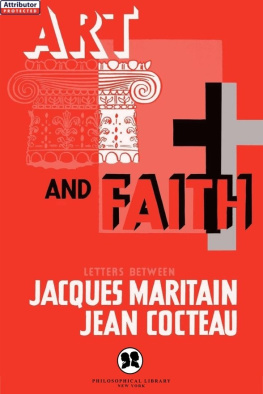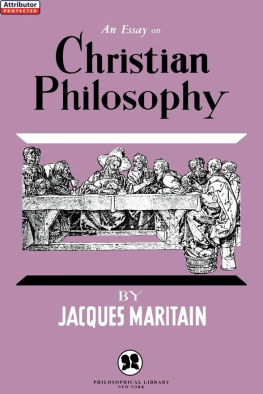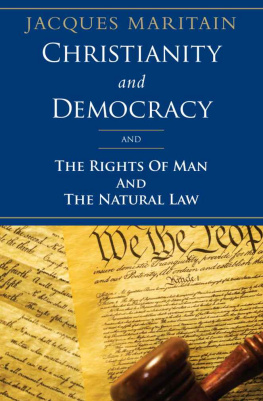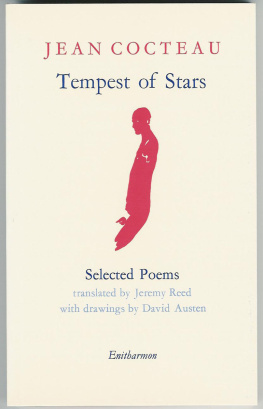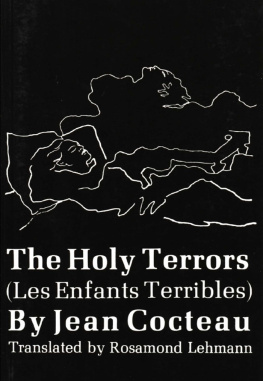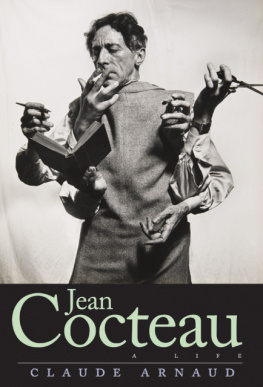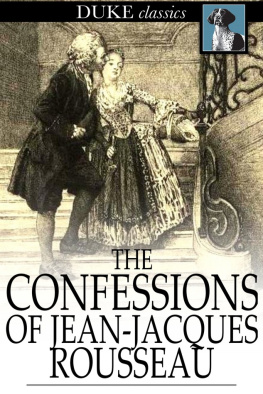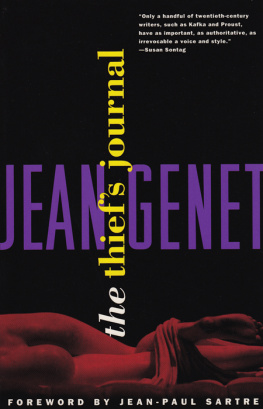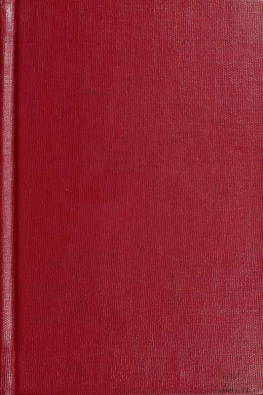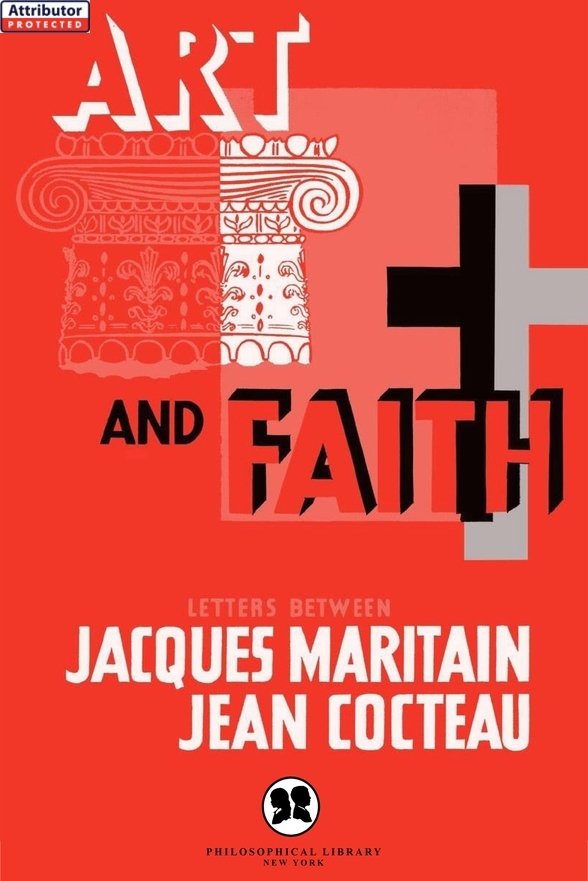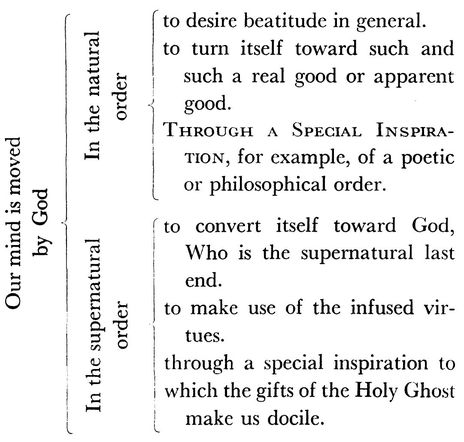NOTES
(1)
I have tried to show this in an article in Art and Scholasticism (Third Edition, Appendix i) and in Art and Poetry.
(2)
Or rather the author of the Ethics to Eudemius : It will perhaps be asked whether it is somebodys good fortune that makes him desire what he should desire, and when he should. Without thinking, deliberating, or taking counsel, he happens to think of and want what is most suitable. What is the cause of this, unless it be good fortune? Yet what is it, in itself, and how can it give such happy inspirations? This is like asking oneself what is the superior principle of the movements of the soul. Now it is clear that God, Who is the principle of the universe, is also that of the soul. All things are moved by Him, Who is present in ourselves.... The principle of reason is not reason, but something superior to it. What is superior to reason and to intelligence, if not God? That is why the ancients said: Happy those who, without deliberating, are moved to do well. This comes not from their will, but from a principle present in them, which is superior to their intelligence and to their will.... Some, under a divine inspiration, even foresee the future.
The ancient philosophers are not alone in recognizing this special motion of God in the natural order; theologians recognize it also. I shall copy here the synopsis drawn up by Father Garrigou-Lagrange, to classify the various modes of divine motion ( Vie Spirituelle, July 1923, Page 419).
(3)
One forgets too often that ideas, representations, are for the poet nothing more than a means, and a sign. You were telling us this on one of those last evenings, that one nearly always makes a mistake in judging poems: a clear poem is a crystal, an obscure poem is an agate. People admire the first because through it they see things they recognize; they condemn the other because it allows nothing to be recognized through it; or else they admire it because they notice veins in it, shadows that seem to look like something. Purity of matter and of the cutting was what they should have looked at. And the spiritual ray that is reflected in it.
(4)
Doing ( agibile ), in the restricted sense in which the scholastics understood this word, consists in the free use, insofar as it is free, of our faculties, or in the exercise of our free will considered not with regard to things themselves and to the work we produce, but purely with regard to the use we make of our freedom....
In opposition to Doing the scholastics defined Making (factible) as productive action, considered not as it relates to the use that in this or that action we make of our freedom, but purely with relation to the thing which is produced, or to the work taken in itself.
This or that action is what it should be, it is good within its order if it conforms to the rules and to the proper end of the work to be produced: and the effect it achieves if it is good is that this work is good in itself. Thus Making is ordered to such and such a particular end, taken in itself and sufficing unto itself, not to the common end of human life; and it is concerned with the good or the perfection peculiar not to the man operating, but to the effected work.
The domain of Making is the domain of Art, in the most universal sense of the word. ( Art and Scholasticism .)
(5)
The artist must be, (excuse me for repeating what I have already said elsewhere
(6)
Let me set down here some excerpts from a letter from Father Surin, the great spiritual who exorcized the possessed of Loudun, and who himself was possessed for twenty years. He wrote to his colleague, Father dAttichy, a Jesuit at Rennes.
... Since the last letter I wrote you I have fallen in a state far removed from what I expected, but in full conformity with Gods Providence over my soul. I am no longer at Marennes, but at Loudun, where I received your letter. Since recently I have been in perpetual conversation with devils, in which I had adventures that would be too long to recount to you, and that gave me more reasons than I ever had to know and admire Gods goodness. I should like to tell you something about it, and I would tell you more if you were less talkative.
I got into a combat with four of the most powerful and malignant devils of Hellme, I repeat, whose weakness you know. God allowed the struggles to be so violent, and the approaches so frequent, that exorcism was the less dangerous battlefield, for the enemies declared themselves in secret day and night, in a thousand different ways. You can imagine what a pleasure it is to find oneself at the mercy of God alone. I shall tell you no more about it; it is enough for me that, knowing of my state, you take occasion to pray for me; such is my condition that for three and a half months I am never without an active devil beside me. Things have come to such a pass that God has permitted, I suppose, for my sins, what has perhaps never been seen in the Church; namely, that in the exercise of my ministry the devil passes from the body of the person possessed and, coming into mine, assaults me and knocks me down, shakes me and visibly goes through me, having possession several hours over me like a lunatic. I could never explain what goes on in me during this time, and how this spirit becomes one with mine without removing either my consciousness, or the freedom of my soul. He makes himself at the same tme like another self of mine, as if I had two souls one of which is dispossessed of its body and of the use of its members, and holds itself back, seeing the activity of the other that has entered into me. The two spirits fight each other on one and the same field, which is the body, and the soul is as if divided: one part of it is subject to the diabolical influences, and the other to its own real impulses, or to those God gives it. At the same time I feel a great peace that is at Gods mercy, and without my knowing how there comes to me an extreme rage and an aversion for Him which produces a craving as it were, for being separated from Him, which astonishes those who witness it; at the same time I feel a great joy and peacefulness, and on the other hand a sadness that is expressed by lamentations and cries similar to those of devils. I feel the state of damnation and I fear it, and I feel as if pierced by shafts of despair in this foreign soul that seems mine; and the other soul, full of confidence, derides such feelings, and with perfect freedom curses him that causes them; I even feel that the very cries which come out of my mouth come from those two souls equally, and am at pains to tell whether they are produced by joy, or the extreme frenzy that fills me. The tremblings which seize me when the Blessed Sacrament is given me come as much, it seems to me, from the horror of His presence, which is unbearable to me, as from a heartfelt and sweet reverencewithout my being able to ascribe them to the one rather than to the other, and without its being in my power to restrain myself. When I want, by the movement of one of these two souls, to cross myself on the mouth, the other pushes my hand away with great speed, and seizes my finger in its teeth, to bite it out of rage. I rarely find my prayers easier and more peaceful than when I am in these agitations. While my body rolls about and the ministers of the Church speak to me as to a devil and load me down with maledictions, I could never tell you the joy I feel; having become a devil not through rebellion against God, but through the calamity that genuinely sets before me the pass to which sin has reduced me, and the way in which, taking on to myself all the maledictions that are given to me, my soul has reason to lose itself in its nothingness.... What a favor it is to know by experience from what a state Jesus Christ has drawn me, and to feel how great is His redemption, no longer through hearsay, but by undergoing this very state, and how good it feels both to have the capacity to enter into the misfortune, and to give thanks to the goodness that has freed us from it at such labor! That is where I am at, at this hour nearly every day. Great arguments arise over all this et factus sum magna quaestio as to whether or not it is a case of possession; whether it is possible for ministers of the Gospel to fall into such grave mishaps. Some say it is a punishment of God upon me for some delusion. Others say something else, and I just hold still and I would exchange my fortune with no one else, having the firm conviction that nothing is better than to be reduced to great extremities....

